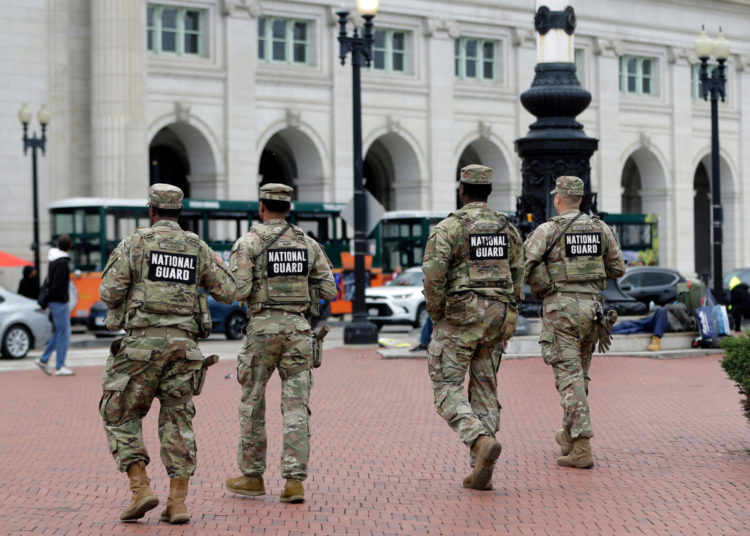On March 21, Armenia’s land border with Turkey, closed since 1993 amid their decades-long diplomatic rupture, opened temporarily to allow through Armenian humanitarian aid trucks delivering goods to Syria through Turkish territory. It was the second such opening; the first occurred in 2023, when the Armenian government directed relief and aid workers to victims of a devastating earthquake in southern Turkey.
As the trucks rolled across the border, the reaction in neighboring Azerbaijan was blistering. State-controlled media railed against any hint of rapprochement between Ankara and Yerevan, accusing “circles in Turkey” of betraying Azerbaijan and of using pro-Western Armenia to win favor with “imperialist forces” and the European Union. (Armenia had just adopted a law launching its EU accession process.) Even seasoned regional observers were struck by the stridency of the conspiracy-laden reports.
Turkish President Recep Tayyip Erdogan’s government has so far indulged Azerbaijan’s ruler, Ilham Aliyev, in conditioning Turkish-Armenian normalization on an Azerbaijan-Armenia treaty. Last month, in a move that surprised many, Armenia and Azerbaijan announced the finalization of language for accords to end decades of conflict.
But since then, reformist Armenian Prime Minister Nikol Pashinyan has been left futilely proposing venues and dates for a final signing ceremony—entreaties that have gone unreciprocated by a stonewalling, and newly bellicose, Aliyev.
In failing to put his signature to the finalized peace accord, Aliyev is effectively scuttling the Turkey-Armenia track. What’s the holdup, then? In short, it is the effective veto that Aliyev wields over Turkish regional policy. The Azerbaijani president views potential Turkish-Armenian normalization both as a threat to his domestic legitimacy and as a constraint on his ability to maneuver among regional powers.
By blocking a peace agreement and also constraining Ankara’s role in the South Caucasus, Azerbaijan looks to be attempting to play multiple geopolitical patrons—Russia, Turkey, China, and the EU—against one another to safeguard regime continuity. It’s a tactic reminiscent of Belarusian leader Aleksandr Lukashenko’s pre-2020 strategy, before that year’s post-election protests pushed him decisively into Moscow’s orbit.
Yet, as Aliyev resists regional openness, it is Turkey that stands to lose. Surrounded by armed conflict and geopolitical rivalries, the South Caucasus represents one of the few areas where Ankara could find a reprieve—and a sustainable opportunity to realize its ambition of becoming a true bridge between Europe and Asia. The open border with Armenia also diversifies access and connectivity between the South Caucasus and Central Asia, enhancing Turkey’s position in the rapidly shifting Eurasian geopolitics.
Azerbaijan’s outsized influence over Turkey is striking, given the stark power imbalance: Its population is a little more than one-tenth the size, and its economy just 7 percent that of Turkey’s. Several factors explain Azerbaijan’s excessive sway in Turkey—from historical roots to commercial and military relations.
Commercial ties are headlined by energy and military cooperation. Pipelines transporting crude oil and natural gas from Azerbaijan—as well as growing volumes from Kazakhstan and Russia—traverse Turkey, generating transit revenue for Ankara and natural gas for domestic use, supporting Turkish aspirations to become a regional energy hub.
Azerbaijan’s state-owned oil company also operates the Star oil refinery in Izmir, financed in part by Russia’s sanctioned Lukoil, to refine Russian crude for the Turkish market. Azerbaijan also continues to be a leading buyer of Turkish arms. Nevertheless, Azerbaijan is far outstripped by developed trading economies—such as Germany, the United Kingdom, Russia, the Netherlands, and the United States—in measures of foreign direct investment and trade in Turkey.
An important facet of Azerbaijan’s leverage comes from the softer forms of power that Baku brings to bear in Ankara. The close personal relationship between Presidents Erdogan and Aliyev is underpinned by extensive commercial ties between the rulers’ respective business patronage networks. These levers are effectively an extension of Azerbaijan’s so-called “caviar diplomacy”—Baku’s long-standing strategy of buying influence abroad, including in Europe. In Turkey, Baku’s reach is deeper still, with Azerbaijani capital funding TV networks that have for years unreservedly backed Erdogan and his allies in elections.
Recently, Turkish journalist Barcin Yinanc, who was on an unprecedented visit to Armenia as part of a delegation of Turkish journalists, highlighted Azerbaijan’s outsized influence over Turkey in a piece published in a Turkish outlet—a bold move, according to former ambassador Unal Cevikoz, a key figure in past normalization efforts.
Baku isn’t wrong, of course, that there are many strategists in Turkey who—after three decades of estrangement—support normalizing relations with Armenia. With growing domestic instability, Turkey faces rising pressure to secure stable trade routes and assume a key role in the “Middle Corridor”—a vast regional transport and development project that connects the Black Sea to Central Asia and China, bypassing both Iran and Russia.
For Turkey—and more broadly, for Europe and Washington—the border with Armenia is a critical link along that route; alternatives to the north or south are either hindered by challenging mountainous terrain or traverse politically fraught Iranian territory.
Key figures in Turkey are similarly clear-eyed about the strategic benefits. Among many others, retired diplomat Fatih Ceylan and Guven Sak, a leading economist, have emphasized Ankara’s interests in modernizing regional connectivity, scaling markets in the South Caucasus, and positioning Turkey as the key overland bridge between Europe and Central Asia as well as onward to East and Southeast Asia.
This has been echoed by European Commission President Ursula von der Leyen, who stressed in early April that the “opening of the borders of Armenia with Turkey and Azerbaijan is going to be a game changer.” The project would diversify access from Europe and the South Caucasus to Central Asia—and boost Turkey’s role amid shifting Eurasian dynamics.
Aliyev’s motivation for sabotaging Turkish-Armenian normalization—and his own accord with Armenia—lies in the domestic social and economic realities of today’s Azerbaijan. The ruling family, now in its fourth decade of uninterrupted rule, has rooted its political legitimacy in large part in nationalist conflict and enmity toward Armenia and ethnic Armenians.
As the now-imprisoned Azerbaijani peace activist and scholar Bahruz Samadov has written, Aliyev’s military conquest of Nagorno-Karabakh in late 2023 and the region’s subsequent de-Armenization could have afforded space for a revised regime ideology. But the ruling family has instead doubled down, not just on belligerency against Armenia—threats of war, invasion, and eliminationist rhetoric have become commonplace—but also on intensified domestic repression of opposition groups, civil society, independent media, and pro-peace voices.
Exacerbating the tensions for Aliyev is a stagnant economy that is heavily reliant on declining oil and gas reserves, which still account for 90 percent of Azerbaijan’s hard currency earnings. Oil exports have decreased by more than half from their peak and, with no significant new discoveries made, global oil majors such as Chevron and Equinor have divested from the country. In the government’s recent media crackdown, the shuttering of the local offices of Bloomberg News—as well as the jailing of independent economists—was telling.
A World Bank report released last month placed Azerbaijan’s economy in the same category of vulnerable petrostates as Angola, Libya, Gabon, and Nigeria. Local rumors of an uncontrolled devaluation of the national currency have increased, reminiscent of an earlier currency collapse in 2016 that impoverished large swaths of the population, and led to violent anti-government uprisings.
Turkey now faces a pivotal moment: With the core Azerbaijan-Armenia agreement in place, it has a unique opportunity to shape the regional order in the South Caucasus and help bring the peace process to a successful conclusion. Turkey’s position relative to the peace deal is a litmus test for its prospects as an effective middle power in the Eurasian continent as well as its capacities to organize cooperation in the South Caucasus.
In the recent past, Ankara has fleetingly demonstrated the agency and capacity—if not complete will—to act. Since 2021, Turkey and Armenia have held sporadic bilateral talks toward normalizing relations, even appointing special representatives to the process. In 2022, they agreed to open the border to third-country nationals and begin reciprocal air cargo flights; those agreements, however, have remained on paper, derailed by pressure on Ankara from Baku.
But it’s uncertain whether the Erdogan government by itself has the will or capacity to overcome Azerbaijan’s effective veto over Turkey’s regional policy. In an interview with me, Yinanc—the aforementioned journalist from Turkey’s T24 network—pointed to the fragility of the current Turkish administration, which renders it risk averse in disrupting traditional bases of support and existing arrangements, including those with Baku. That continued trajectory would provide Erdogan with short-term tactical gain, but it would come at the expense of long-term strategic losses for Turkey at a time of dramatic reshuffling of the Eurasian order.
There are two possible alternate paths forward. In one, the Erdogan government defies Baku and delinks the Turkey-Armenia normalization process from the Armenia-Azerbaijan accords. In the second, Turkey, likely together with the United States and Europe, induces Aliyev and Pashinyan to formally conclude the already agreed-upon treaty. This will require a mixture of carrots and sticks. The myriad last-minute, nontreaty pretexts that are cited by Aliyev for not signing the accords are either specious, readily solvable, or both, but they will require external diplomatic engagement. Otherwise, Baku will continue to drag its feet in hopes of maintaining leverage, at the expense of Turkish and Western interests.
If left unsigned, the failed peace process will consolidate the regional fracture in the South Caucasus—a condition that the Kremlin has historically utilized as a lever for global power projection. This is worrisome to many analysts inside Turkey.
The status quo fundamentally constrains the “strategic autonomy” doctrine that Ankara has articulated during this second decade of Justice and Development Party rule. Scholars Mustafa Kutlay and Ziya Onis wrote in a 2021 article that this policy has been “accompanied by military interventionism and coercive diplomacy.”
This trend represents a quest for autonomous space to maneuver, both relative to “the West” and in response to the rise of “the rest.” As some other scholars have argued, this has created new forms of dependence on China and Russia, thus far producing little in the way of elevating Turkey’s position as a middle power in the world politics. Outsized dependence on Azerbaijan is part of this broader trend.
Amid Turkey’s strategic paralysis in the South Caucasus, it is China that has quietly bookended the region. Beijing is making major investments across the Middle Corridor, from Kazakhstan to Azerbaijan to Georgia’s deep-sea ports.
The closed border with Armenia also prevents Turkey from maturing its existing bilateral relations with Georgia and Azerbaijan into a cohesive regional policy. A more integrated approach to the South Caucasus could strengthen EU-Turkey coordination in the broader Eurasian context, particularly in light of Armenia’s recent moves toward EU candidacy. This could also generate momentum for reviving and modernizing Turkey’s own customs union agreement with the EU. Significant trade across a newly opened border would benefit Turkey’s predominantly Kurdish eastern regions, which border Armenia, accelerating Ankara’s economic development efforts there.
However, Turkey’s trade and transit routes to Central Asia through the Middle Corridor remain limited without Armenia, as they traverse Georgia and Iran, both of which face significant geopolitical challenges. Russia’s plans to establish a naval base in Abkhazia and the potential for an enhanced Russian naval presence in the Black Sea further threaten to restrict access to the Middle Corridor. Meanwhile, Iran’s nuclear ambitions and standoff with the West complicate Turkey’s strategic autonomy and the theoretical ability to connect to the Middle Corridor via Iran.
Turkey’s continued deference to Azerbaijan is turning a critical regional opportunity into a self-defeating policy. Unless Ankara reclaims its autonomy, it risks missing its moment to lead in Eurasia.
The post Turkey’s Pivotal Moment With Azerbaijan appeared first on Foreign Policy.




